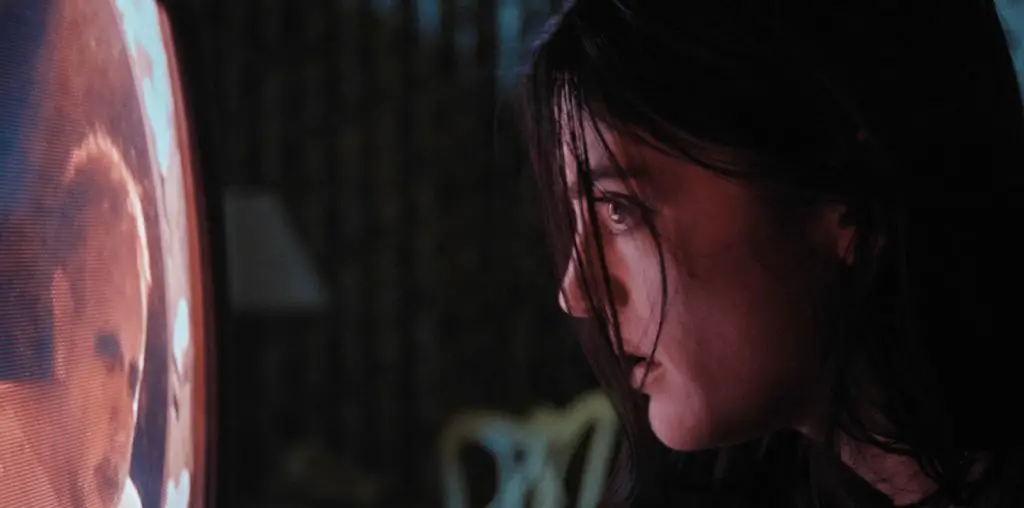
Bryan Enk’s modern-dress, DV adaptation of Shakespeare’s “Macbeth” deserves credit for the intelligent and often playful manner of bringing the intrigue of ancient Scotland to the 21st century. Corporate boardrooms, cocktail lounges, and even a comedy club (to accommodate the jokey monologue of the grumpy porter aroused from his sleep to open the gates for very late visitors) provides more than enough of a contemporary parallel to the gruesome tale of a power-hungry noble and his vicious wife’s thrust for corruptive power.
But at 75 minutes, Enk’s “Macbeth” ruthlessly cuts Shakespeare’s text and matters are not helped by having the cast literally spit out their lines at breakneck speed. Careful attention must be paid, as it is too easy to lose the Shakespearean magic from the motor-mouthed line readings here. This is Shakespeare through a whirlwind, with passages of semantic magic blowing at supersonic speed amid a razzle-dazzle visual presentation. It may not be great Shakespeare, but for stretches of time it is fun to behold.
Despite the severity of the adaptation, this “Macbeth” is an inventive and stylish creation. The Three Witches first appear in chic black dresses at a bar where Macbeth and Duncan, dressed in athletic wear, are toasting each other. The “Is this a dagger I see before me?” soliloquy is performed by Macbeth while Lady Macbeth records him with a handheld video camera. Macbeth’s assassins are a chic punk couple given to designer sunglasses and expensive leather jackets; the female member of the murderous pair licks the blood from her dagger and responds to the taste with a wicked grin. Malcolm’s eventual ascent to the throne is greeted with a humorous elevator descent, with a naughty hint of a possible nasty sequel that Shakespeare did not intend. And the idea of seeing and hearing Shakespearean dialogue recited into cell phones is too much fun to behold.
As Macbeth, Peter B. Brown fully captures the paranoia and vulnerability of the doomed Scot. His Macbeth is clearly not worthy of the challenge and demands of his crimes and watching him crumble under the strain is a harrowing experience. Moira Stone is deceptively calm as Lady Macbeth, asserting her authority with a deceptive balance of light fury and heavy diplomacy. The subtle nature of her performance makes her inevitable demise (in this case, slashed wrists in a bathtub) all the more devastating. These actors are wonderful together, whether in throwaway scenes such as their preparation for Duncan’s murder (shot in a bathroom while Macbeth shaves as his wife primps her appearance). When the actors react to Macbeth’s murder of Duncan, their volatile mix of guilt and improvised cover-up is dramatic dynamite. Enk films this sequence in tight close-ups with illumination from below their faces, creating the illusion of demonic masks come to life.
Yet this abbreviated running time ultimately works against them and the film’s emphasis on style eventually overtakes the substance. Enk’s film moves much too fast for the intrigue and tragedy to take full root (Banquo’s reaction to the news of the slaughter of his family seems like it was filmed in fast-forward) and “Macbeth” seems too rushed for its own good–it is Shakespeare by way of “Beat the Clock.” If a more leisurely pace had been instituted, this could have been a hypnotic and powerful experience. As it stands (or races, to be precise), “Macbeth” is a fascinating experiment which doesn’t quite hit the mark but nonetheless makes a damn fine effort in trying.
